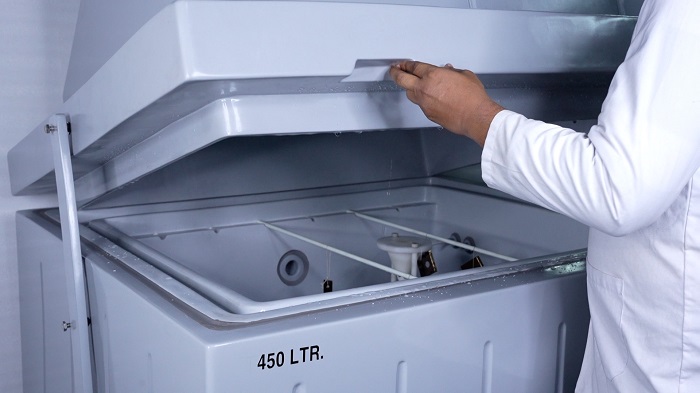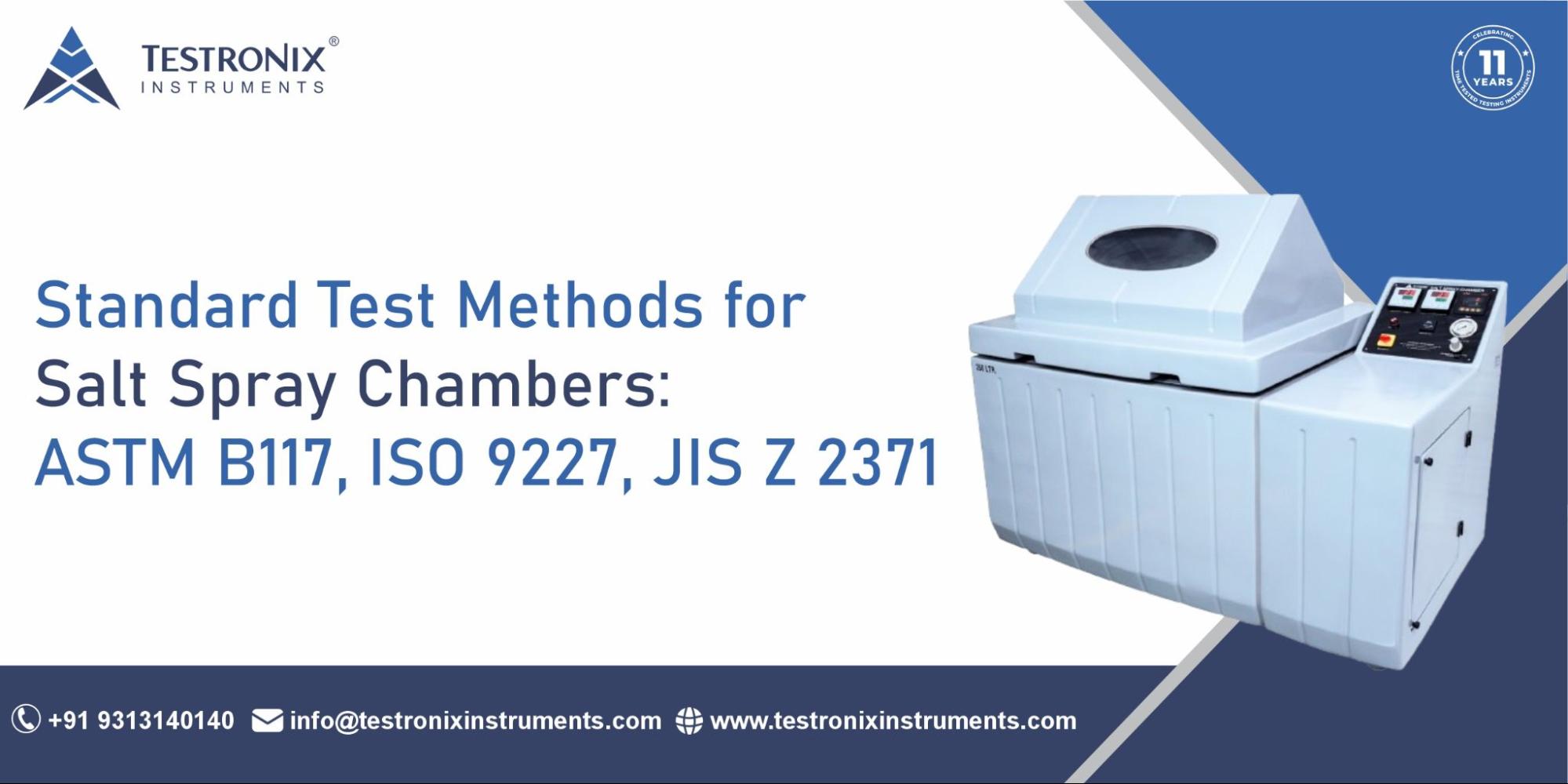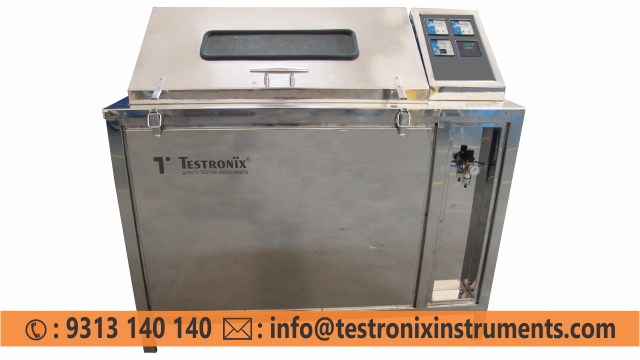Testing is very crucial in the manufacturing world to ensure that products made are of quality, durable, and reliable. To achieve consistency, accuracy, and repeatability, industries standardize standard test methods. These are clear and uniform processes that companies can follow to test their materials or products under certain conditions.
What are Standard Test Methods?
Standard test methods are described practices that describe exactly what has to be done, in conducting a specific type of test for reproducible results. Most of them are prepared by national or international standardization bodies, like ASTM, and the International Organization for Standardization. They develop standards that ensure tests are conducted in the same way everywhere and by everyone.
For instance, a salt spray chamber is used for the corrosion resistance tests. If manufacturers maintain results from standardized test methods, such as ASTM B117, ISO 9227, or JIS Z 2371, then their outcome is comparable with worldwide standards. The chances of repeating these methods will enhance reliability, thus, comparison of results from the tests becomes a much more straightforward exercise while ensuring that the quality of products is maintained.
Standard Test Methods in Industries: Importance
-
Uniformity: If a standard test method is utilized by various manufacturers, then the tests conducted in diverse facilities or at different times will have similar results. Indeed, constancy is essential when there exist successive production batches of products where quality homogeneity is warranted.
-
Trust and Confidence: The tested products with the standard procedure are trusted by the clients because testing procedures are accepted universally. A customer can be confident that a product that meets a standard test result shall satisfy the expected performance.
-
Compliance with Regulation: Various industries have legal compulsions related to the use of specific test standards. Use of such standards guarantees companies avoid penalties and assure that products shall come out safe for the market.
-
Competitive Advantage: Conformity to established standards gives the corporate world an edge in competition. Their products are either up to or above industry benchmarks, hence more preferred in the marketplace.
-
Cost Efficiency: Since the application of well-defined test methods costs failure or product failure. With the validation of the test against international standards, manufacturers avoid costly recalls or fixes due to failures in products.
Why Choose Testronix?
Tested over 11 years in the development of innovative and sustainable solutions, Testronix has acquired reliability in the field of testing instruments. Testronix built its reputation by supplying some of the finest testing equipment used by the world, coming in multiple applications, from packaging to automotive, and ensures that those industries will be able to meet international standards.
Testronix believes firmly in quality and accuracy, and one may well describe this by way of The Salt Spray Chamber. It follows the ASTM B117, ISO 9227, and JIS Z 2371, or to put it plainly, you have an outcome that would be perceived overall and more significantly.
Principles of Salt Spray Testing: ASTM B117, ISO 9227, JIS Z 2371
Let us go a little more into detail on three of the main standards our Salt Spray Chamber meets :
ASTM B117:
This is the most common standard which has widely been accepted in the concerns of salt spray testing. It basically offers operating conditions for a salt fog apparatus, such as conditions to be maintained by temperature, humidity, and salt concentration in the solution. It is widely used all over the world to test metals and coatings in saltwater conditions for corrosion resistance.
ISO 9227:
ISO 9227 is like ASTM B117. It defines the international test conditions required to conduct a salt spray test. However, this international standard is accepted worldwide, making it suitable for multinational companies. This international standard ensures that your product meets the corrosion resistance requirements of clients and regulators worldwide.
JIS Z 2371:
This Japanese standard is used in Asian nations to guide one in testing metallic materials for corrosion resistance under salt spray conditions. Like all the other standards, JIS Z 2371 makes the products resistant to salt-rich environments with slight deterioration.

Consequences of Non-compliance to Salt Spray Chamber Standards
-
Unreliable Results
With a standard procedure, all test results become reliable. As explained, conditions' differences or adjustments to the test station may generate uncertain outcomes, not capable of being used with enough certainty when reviewing corrosion resistance in products.
-
Product Failures
A product that is not tested under controlled conditions is likely to fail in real-life environments. Consequently, this leads to a failed product and losses for the customers, as well as the costs of recalling the products.
-
Loss of Access to Markets
The goods that are not tested according to various standards recognized globally may be restricted from accessing particular markets. Ideally, regulatory bodies or customers may reject products not tested according to accepted standards.
-
Legal Risks
There are also legal risks on several grounds, as many industries tend to apply or exercise specific standards in testing products. Failure to adhere to this requirement can lead companies into certain liabilities, especially when the used product becomes dangerous to customers or does not correspond to the expectations of consumers.
-
Damage to Reputation
If, in such a situation, the company produces low-quality products, due to inappropriate testing, it can lead to severe long-run implications for a company's reputation. Thus, in today's competitive marketplace, retaining the trust, and credibility of its customers is a must.
FAQs
What is a salt spray chamber?
It's used to simulate environments in which corrosive substances deposit on materials and coatings for resistance testing.
Why are ASTM B117, ISO 9227, and JIS Z 2371 important concerning salt spray testing?
These standards ensure that repeatable, controlled conditions prevail during salt spray tests so that results obtained under varied test environments have reliable consistency.
Who uses salt spray testing?
It is the mainstay for most of the automotive, aerospace, packaging, and construction industries, which need to test their material to withstand corrosive conditions.
Trust Testronix for Your Salt Spray Testing Needs
Get in touch with us today to find out how to meet your testing needs accurately and reliably.






